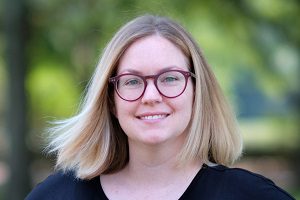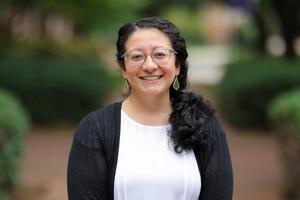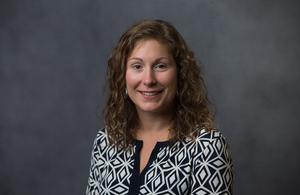Science faculty receive funding for undergraduate research projects

Three Furman University faculty members have received grants from SC INBRE toward their research for projects that explore drug resistance, learning and memory, and the fecal microbiome’s association with autism spectrum disorder.

Meghan Breen, Department of Chemistry
Meghan Breen, assistant professor of chemistry, and students in her lab are investigating the role of a certain protein (Pdr1) in triggering drug resistance in a pathogenic yeast, Candida glabrata. She received funding through the Developmental Research Project Program (DRP).
“We want to know what is occurring at the molecular level to regulate this process – what makes C. glabrata resistant to antifungal drugs,” Breen said. “We are exploring how adding a small group of atoms, called a phosphate, to specific locations on the Pdr1 protein affects ‘turning on’ drug resistance. A better understanding of how drug resistance is regulated could inform the development of future therapeutics to treat drug resistant infections,” she added. Breen is in her second year of the DRP grant, amounting to $50,000 per year, renewable over a total of three years.

Veronica Lee Flores, Department of Psychology
Veronica Lee Flores, assistant professor of psychology and neuroscience, is in the first year of funding for another renewable $50,000 DRP grant, which supports her project, “The impact of innocuous taste experience on long-term taste-learning and memory persistence.”
“Both humans and animals learn to make food decisions by factoring in the consequences of their past eating experiences,” Flores explained. “But my research has shown that even taste experiences that seem trivial and inconsequential can impact future food decisions.”
In the lab, Flores and students will use a rodent model to shed light on how seemingly ordinary taste experience impacts neural plasticity mechanisms that can ultimately lead to enhanced taste-related learning and memory. “This work can inform our knowledge of how food decisions are made, which can impact a wide array of serious health conditions associated with appetite and appetitive disorders, such as overconsumption,” Flores said.

Linnea Freeman, Department of Biology
Linnea Freeman, associate professor of biology and neuroscience, received funding for the Bioinformatics Pilot Project Program, which stimulates the application of genomics and bioinformatics methods by supporting research and student training through the SC INBRE and South Carolina Clinical and Translational Research networks.
Freeman’s work builds on a previous project funded by a NSF EPSCoR Stimulus Research Program grant, which brought together researchers from across South Carolina to study the biological underpinnings of autism spectrum disorder with a focus on metabolic dysfunction.
“Autism spectrum disorder is a developmental condition with an array of symptoms including difficulties with social interactions, verbal and nonverbal communication, and restricted or repetitive behaviors,” Freeman said. “Often there are gastrointestinal issues associated with ASD.”
She noted that males are affected by ASD more frequently than females, with ratios varying from 2:1 to up to 16:1 in different studies. Using a mouse model of autism that employs a medication commonly used for treating epilepsy and other disorders, Freeman’s lab will test the hypothesis that sex differences in the fecal microbiome impact neuronal health and behavioral characteristics within ASD. The $8,500 in direct BIPP funding makes the fecal microbiome investigation possible, Freeman said.
Over the past seven years, seven Furman faculty been named recipients of DRP awards, resulting in $1.4 million in individual investigator funding and more than $2.5 million in NIH INBRE institutional funding, according to John Wheeler, associate provost for integrative science and professor of chemistry.
“The most recent INBRE awards to Meghan, Veronica and Linnea, who represent three different Furman science departments, will continue to foster the level of scientific advancement and peer-reviewed publication consistent with the extraordinary quality of Furman’s faculty and student research efforts. These faculty/student collaborations powerfully demonstrate The Furman Advantage,” Wheeler said.